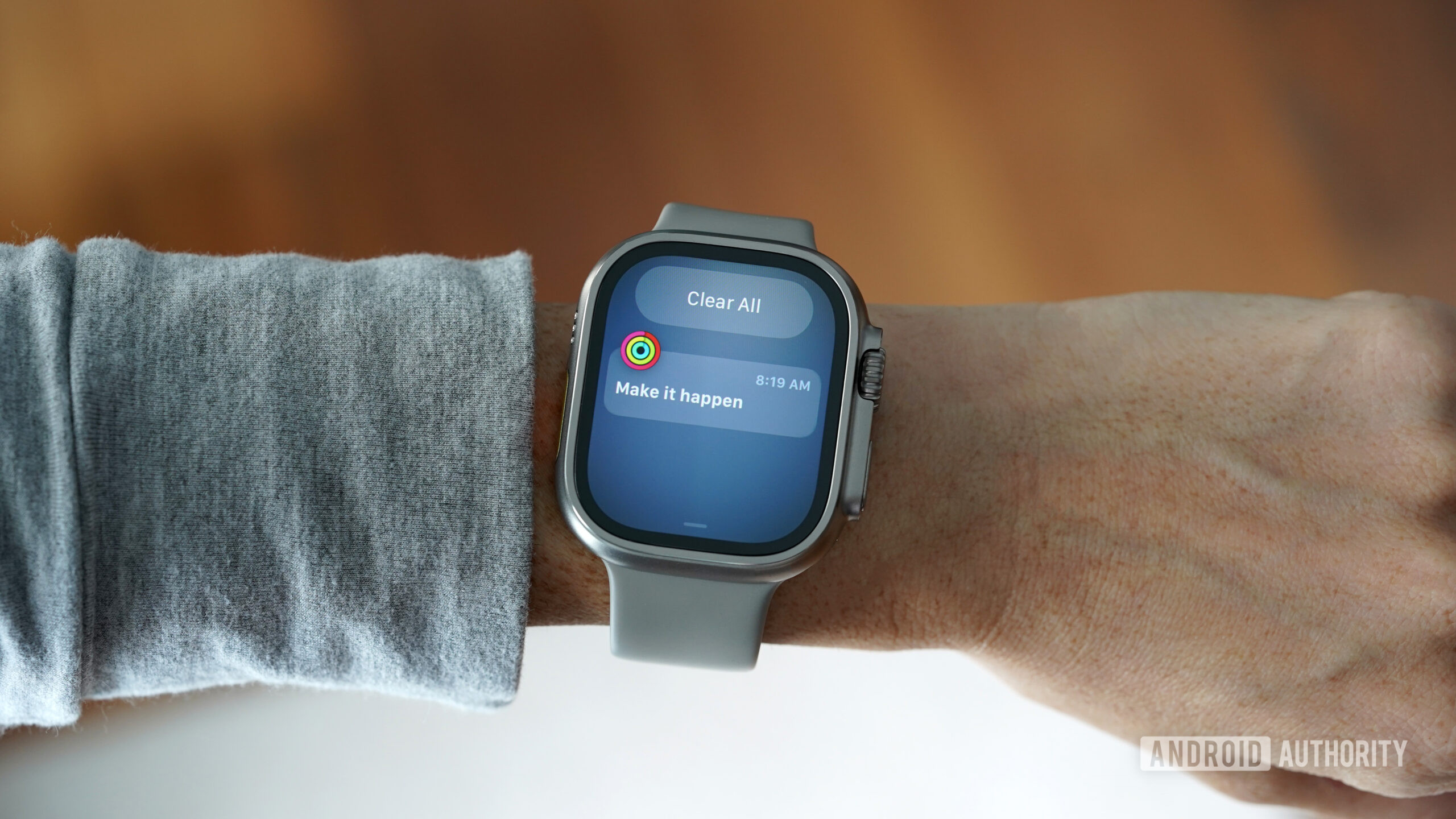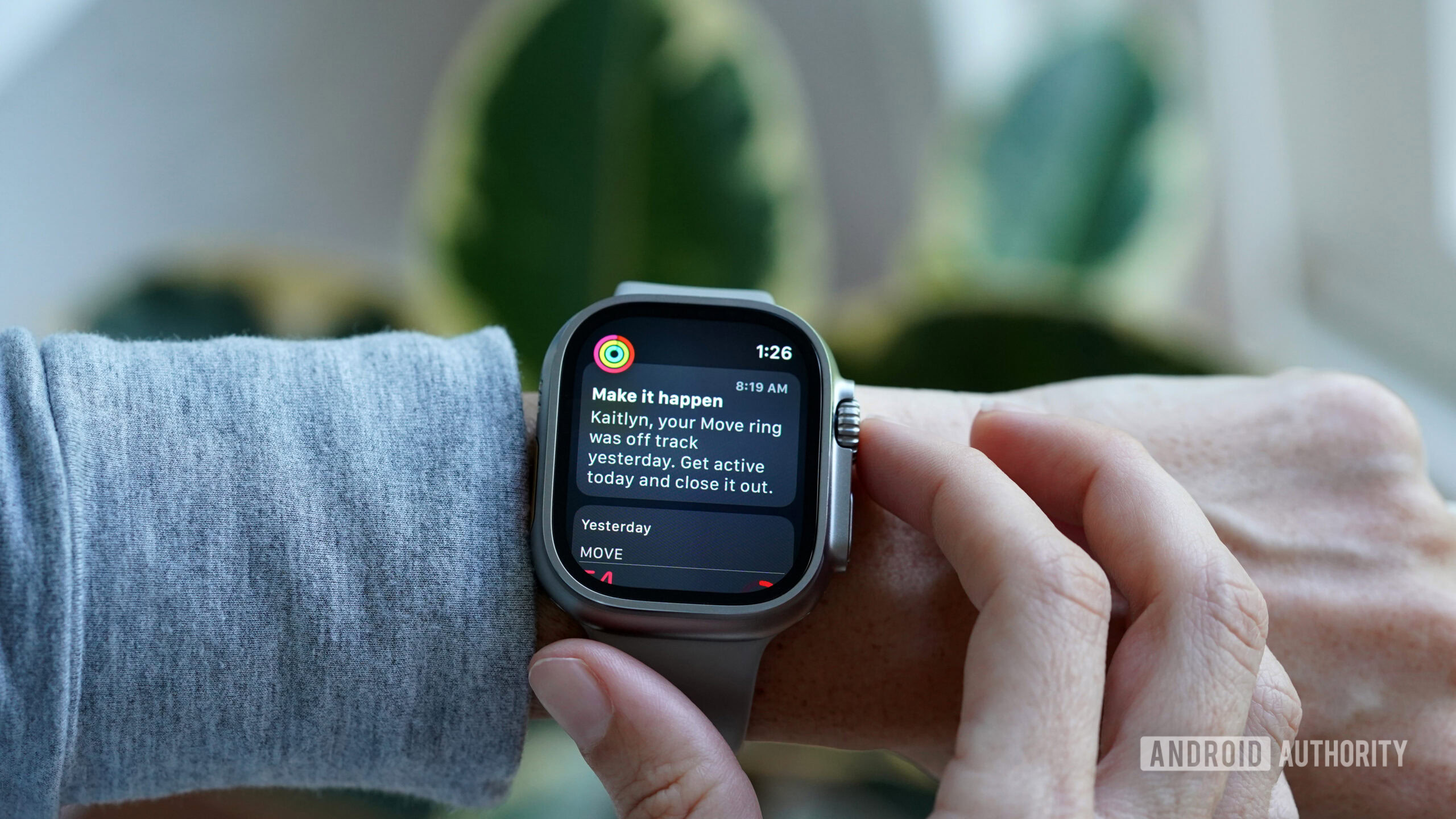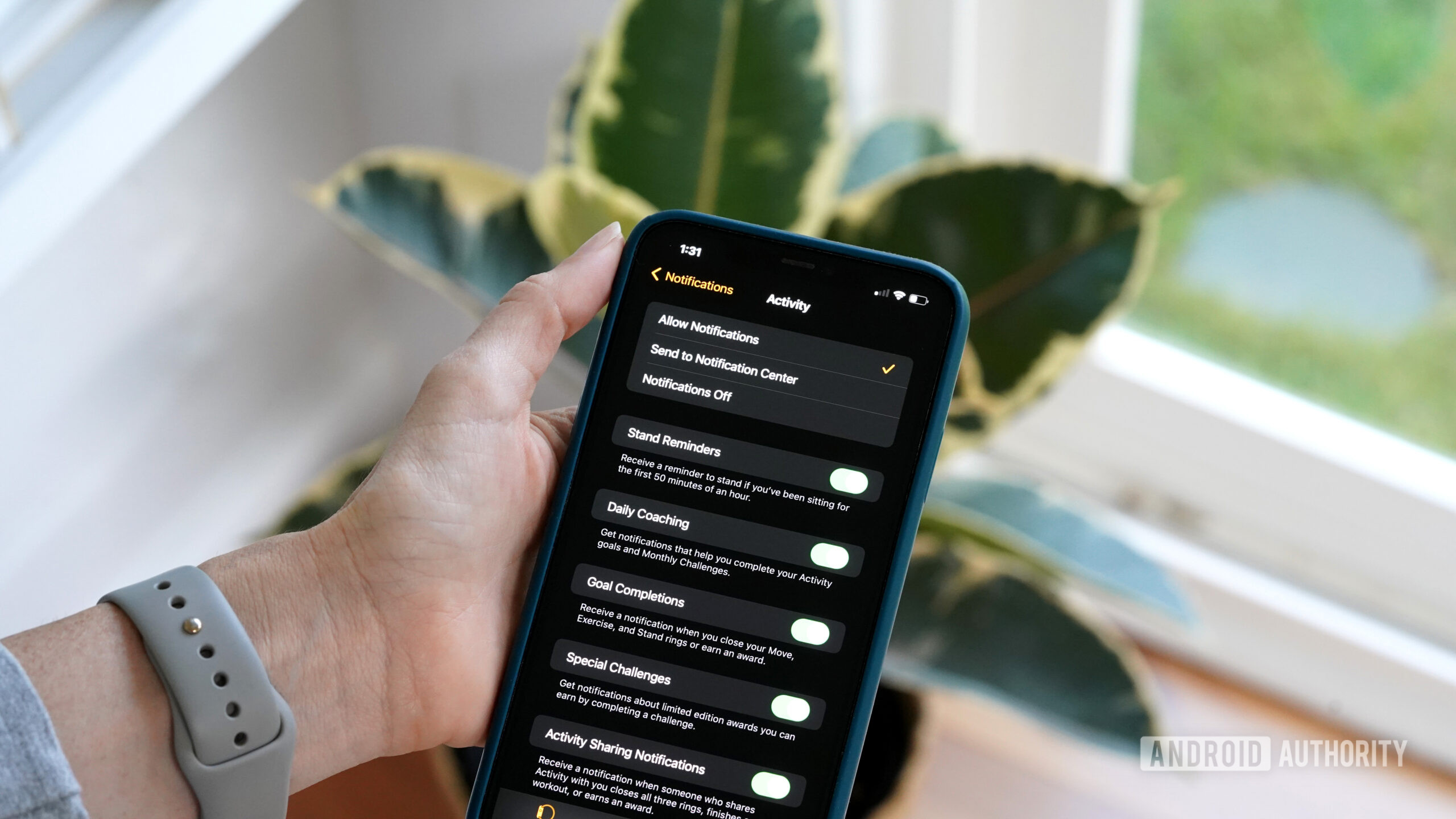Affiliate links on Android Authority may earn us a commission. Learn more.
My smartwatch doesn't get me. Could AI make it better?

Despite the commitment I’ve shown to smartwatches, no platform seems to actually get me. I realize this sounds like an angsty teenager, but hear me out. Throughout my review testing and personal use, watch after watch and wearable after wearable have delivered a one-size-fits-all experience with untailored insights and obnoxious notifications.
Sure, some companies lean into machine learning more than others, but no watch has yet to offer the tailored experience I imagine to be possible.
My growing resentment of daily step goals

With unfettered access to key health and fitness tracking metrics and more time on my person than anything else I own, my smartwatch or ring should have a fairly personalized knowledge of my habits and goals. Generally speaking, I am active early in the morning, slow down during working hours, and peak in the evenings. I walk a ton, run or cycle regularly, lift occasionally, and drink water, well, never. My heart rate is above average at baseline, my stress levels are indiscernible, and my sleep schedule is that of a midnight vigilante (very limited). I know all this about myself, and I expect my device to learn it with ease after a few days on my wrist.
My habits are fairly regular, but my smartwatch fails to adapt to them.
And yet. Nearly daily, I am prompted to stand up in the middle of a meal or take a walk despite already walking triple the needed steps only an hour before. I’m told my exercise goals have been achieved after a joke of a morning workout or my sleep score needs improvement without any acknowledgment that my needs might not be the standard needs. The outcome is that I am constantly disabling features that don’t conform to my existing habits. Hydration notifications are the true bane of my existence, but illogical or inflexible step notifications are a close second.
The fact of the matter is that no platform should cater to a base of cookie-cutter users. Whether you are a dedicated athlete or completely new to tracking, few lifestyles conform to conventional health and fitness goals. People also get sick, have hectic weekends, or just want rest days. The current systems available on most smartwatches are relentless when they should be able to adapt to me getting the flu or taking a day off.
From annoying push notifications to illogical prompts, the experience does not feel personalized.
Smartwatches and fitness trackers need to offer more imaginative features that better serve each individual user. Some brands, like Oura, leverage machine learning algorithms to adapt to users. These tools are a start, but they’re still imperfect. Other tools, like Apple’s mindfulness app and other journaling features, require manual input but don’t garner enough detail or depth to function optimally.
Do you think AI will make wearables better?
How AI can maybe help

Artificial intelligence isn’t just a buzzword (buzz phrase?), it’s actively improving the user experience across the spectrum of technologies. On wearables, AI is already used to transmit data, bolster algorithms for recording data (like heart rate readings on the Google Pixel Watch 2, for example), and even facilitate more predictive analysis. It is not a pipe dream to imagine so much more. My wishlist for AI features is as follows:
- A personalized interface with data fields uniquely relevant to me.
- Intelligent, insightful notifications tailored to my habits, goals, and experiences (if my time zone changes, realize I’m traveling and adjust accordingly).
- AI-powered coaching based on healthy goals for my unique body and fitness level.
In other words, I want a truly personalized smartwatch experience. If AI can deliver the tools necessary for my device to intuitively serve my needs, I will stop telling people we’re all headed toward the plot of I Robot.
With AI, wearables could smartly adapt to personal goals, needs, and schedules.
The next big smartwatch launch on the calendar is the Samsung Galaxy Watch 7 series. Fortunately, the company has confirmed that it will bring Galaxy AI to its “next Galaxy Watch line” (aka the 7 series). According to Samsung, the tool will be used to provide health metrics such as Energy Score, personalized workouts, wellness tips, and better analytics for sleep, training, and race performance. These all sound great in theory, and I am anxious to see how the features perform in practice. A powerful device running Wear OS 5 and One UI 6 could certainly get more balls rolling in terms of AI on wearables.